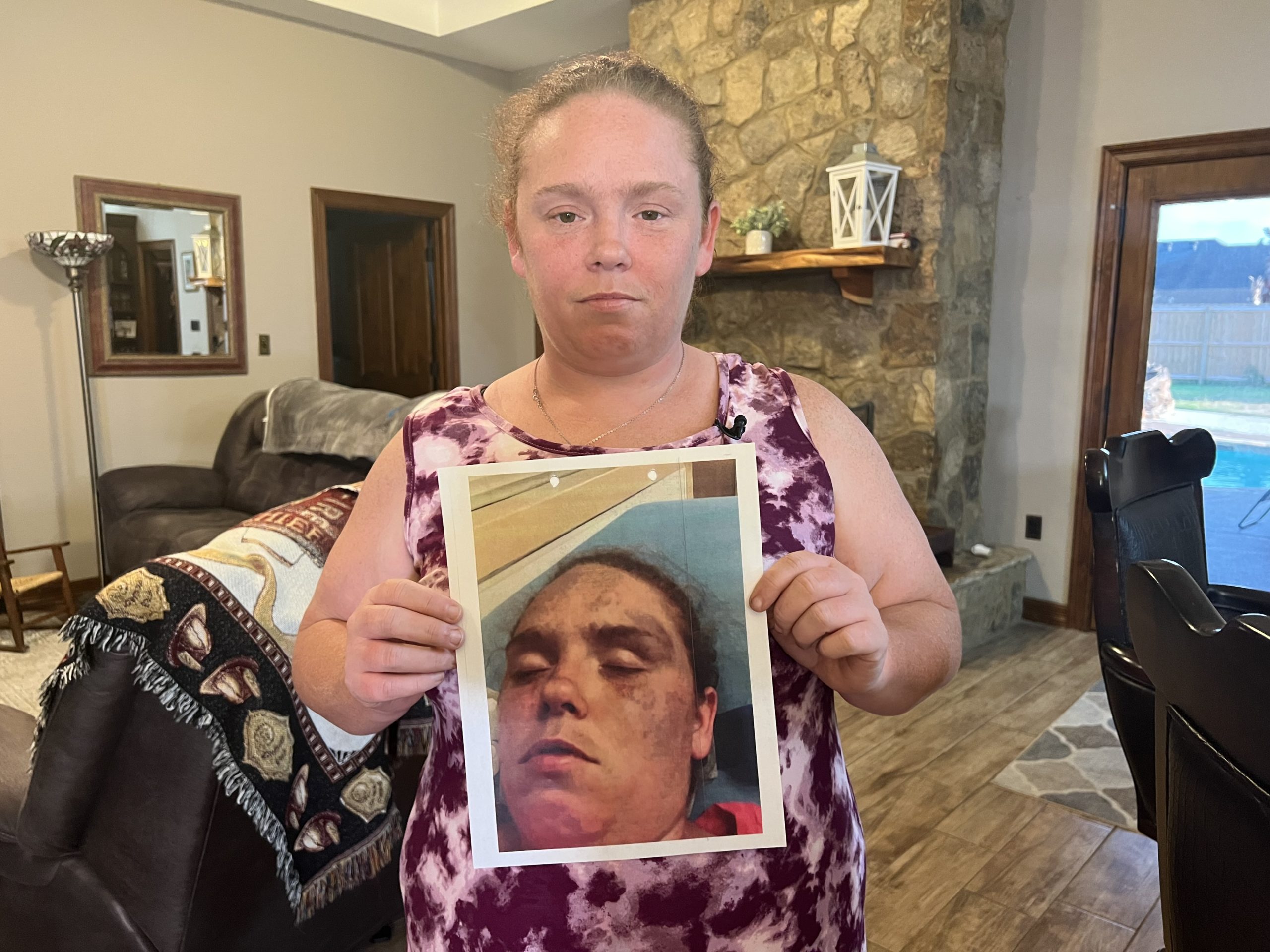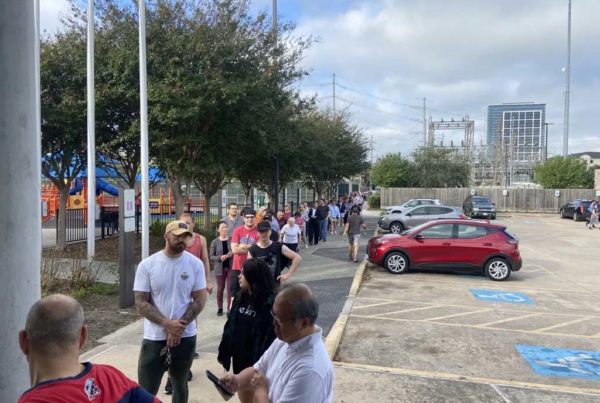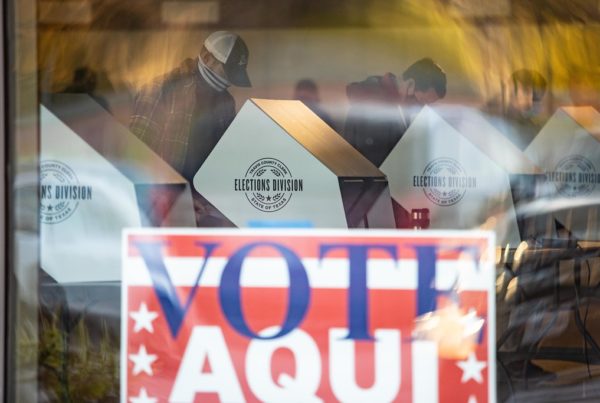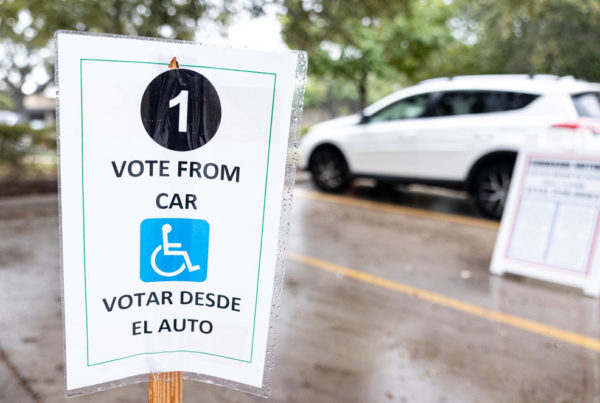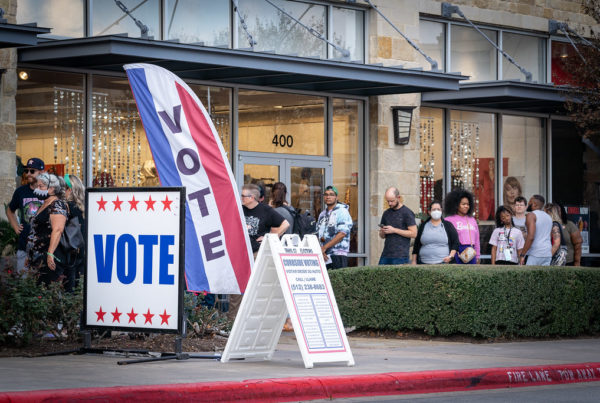The Texas Crime Victims’ Compensation Program has been around for decades. It is managed by the Texas Attorney General’s Office and, since 1980, it has provided payouts to victims of violent crimes who have otherwise exhausted sources such as insurance and worker’s compensation.
But a new investigation from Austin TV station KXAN finds victims are waiting longer and longer to actually receive help. According to their analysis, the wait times have reached at least a four-year high. The bottom line: the wait is up because the department that manages the fund is understaffed and overworked.
David Barer is senior investigative reporter and producer at KXAN. He reported this story with reporter Matt Grant. Listen to the interview with Barer above or read the transcript below.
This transcript has been edited lightly for clarity:
Texas Standard: Where does this money for Texas’ Crime Victims’ Compensation Fund come from and how is it supposed to be used?
David Barer: The Crime Victims’ Compensation Fund is run by the Attorney General’s office in Texas. It’s funded with fees from court cases and federal grants. Last year, they provided about $71 million to victims of crime and about 25,000 or so people applied for compensation.
So it’s a big fund that provides money to people that have been involved in violent crimes like a sexual assault, someone that was hit by a drunk driver, domestic abuse. And it can provide money for things like medical bills, relocation, therapy expenses and things like that. So it’s pretty important for people that have been affected by crime.
What, historically, has been the wait time for victims? And what is it now?
We found through records we got through the Public Information Act that the Crime Victims’ Compensation Office keeps track of this with an internal metric that they use called “average days to first payment.” And that’s just the average number of days it takes to get a first payment to people each month for a victim claim. And we saw that hovering at or below 100 days in the past. Last September it was around 105 and it started going up quite a bit this year and it jumped up to about 150 days in September. So that’s about five months.
What did you learn as to why the wait has increased?
There is a lot of disfunction in the Crime Victims’ Compensation Division. There is a lot of vacancy. We found about 32% of the positions in the department, I think there’s around 120 or so positions, 32% are vacant and there’s been a lot of turnover. And when people leave, for example, like a claim manager who would handle a victim’s claim, when they leave, they hand over all these claims that they’ve been accumulating in their career there, and they’re dispersed out to all the remaining workers. So there’s more attrition. All the people that are left are getting put under more and more strain. So that’s causing them to not be able to pay people as quickly. And that’s, you know, having a bad effect on victims of crime.
How is the extended wait impacting crime victims?
They’re just not getting the money they need quickly. So one woman who was violently assaulted by an acquaintance here in Austin over the summer, she didn’t feel safe at her home anymore, so she left there. She’s trying to get relocation expenses paid, among other things. And she’s been waiting several months. And, you know, like I said, the average time is five months now. So she’s going to have to wait potentially a while longer to get this money. And she said her resources are pretty much tapped out.
We heard similar stories from other people. We traveled over to southeast Texas and talked to a woman who was a survivor of domestic abuse, who’s been waiting quite a long time. She’s gotten some money, but she’s waiting on thousands and thousands of dollars in medical bills and other things that she’s been waiting years to try to get it all sorted out.
We all understand expenses and this can really help people who have fallen on hard times through no fault of their own just because they’re a victim of a violent crime. And it’s pretty sad.
The solution seems to be getting more people into these jobs with the Crime Victims’ Compensation Fund and keeping them there. But does there seem to be any momentum to doing that?
After our reports have aired we’ve seen some interest from state lawmakers to try to inject some funding directly into this division of the Attorney General’s office. The next legislative session is coming up in January. So lawmakers will have a chance to try to do that. Obviously, there will be a lot of combating interests. So it’s not clear if it will actually happen. But there’s interest in doing that.
There’s also interest in trying to kind of streamline and improve the application process and change some of the rules around how much money people can get for certain types of compensation.


